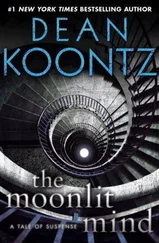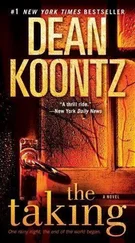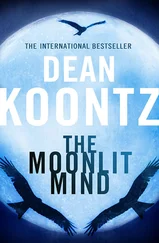Dean Koontz - The Mask
Здесь есть возможность читать онлайн «Dean Koontz - The Mask» весь текст электронной книги совершенно бесплатно (целиком полную версию без сокращений). В некоторых случаях можно слушать аудио, скачать через торрент в формате fb2 и присутствует краткое содержание. Жанр: Триллер, на английском языке. Описание произведения, (предисловие) а так же отзывы посетителей доступны на портале библиотеки ЛибКат.
- Название:The Mask
- Автор:
- Жанр:
- Год:неизвестен
- ISBN:нет данных
- Рейтинг книги:5 / 5. Голосов: 1
-
Избранное:Добавить в избранное
- Отзывы:
-
Ваша оценка:
- 100
- 1
- 2
- 3
- 4
- 5
The Mask: краткое содержание, описание и аннотация
Предлагаем к чтению аннотацию, описание, краткое содержание или предисловие (зависит от того, что написал сам автор книги «The Mask»). Если вы не нашли необходимую информацию о книге — напишите в комментариях, мы постараемся отыскать её.
The Mask — читать онлайн бесплатно полную книгу (весь текст) целиком
Ниже представлен текст книги, разбитый по страницам. Система сохранения места последней прочитанной страницы, позволяет с удобством читать онлайн бесплатно книгу «The Mask», без необходимости каждый раз заново искать на чём Вы остановились. Поставьте закладку, и сможете в любой момент перейти на страницу, на которой закончили чтение.
Интервал:
Закладка:
Clammy with stale sweat, Grace turned to the study window again, seeking warmth and light, but the day was ashen, chilly, forbidding. Wind pressed on the glass, soughed softly under the eaves one floor above.
In the city, near the river, a roiling column of smoke rose into the rain and mist. She had not noticed it a minute ago, but it must have been there; it was too much smoke to have appeared in only a few seconds. Even from this distance, she could see a glint of fire at the base of the dark column.
She wondered if lightning had done the dirty work. She recalled the storm flashing and roaring with extraordinary power in those first seconds after she had awakened. At the time, groggy and bleary-eyed, she had thought her sleep-dulled senses were misleading her and that the extreme violence of the lightning was largely illusory or even imaginary. Could that incredible, destructive barrage have been real after all?
She glanced at her wristwatch.
Her favorite radio station would carry its hourly newscast in less than ten minutes. Maybe there would be a story about the fire and the lightning.
After she’d straightened the throw pillows on the sofa, she stepped out of the study and spotted Aristophanes at the far end of the downstairs hall, near the front door. He was sitting up straight and tall, his tail curled forward and across his front paws, his head held high, as if he were saying, “A Siamese cat is the very best thing on earth, and I am an exceedingly handsome example of the species, and don’t you dare forget it.”
Grace held one hand toward him, rapidly rubbing her thumb against her forefinger. “Kitty-kitty-kitty.”
Aristophanes didn’t move.
“Kitty-kitty-kitty. Come here, Ari. Come on, baby.”
Aristophanes got up and went through the archway on his left, into the dark living room.
“Stubborn damn cat,” she said affectionately.
She went into the downstairs bathroom and washed her face and combed her hair. The mundane task of grooming herself took her mind off the nightmare. Gradually, she began to relax. Her eyes were watery and bloodshot. She rinsed them out with a few drops of Murine.
When she came out of the bathroom, Aristophanes was sitting in the hallway again, watching her.
“Kitty-kitty-kitty,” she coaxed.
He stared unblinkingly.
“Kitty-kitty-kitty.”
Aristophanes rose to his feet, cocked his head, and examined her with curious, shining eyes. When she took a step toward him, he turned and quickly slunk away, casting one backward glance, then disappearing into the living room again.
“Okay,” Grace said. “Okay, buster. Have it your way. Snub me if you want. But just see if there’s any Meow Mix in your bowl tonight.”
In the kitchen she snapped on the lights, then the radio. The station came in clearly enough, though there was a continuous crackle of storm-generated static.
While she listened to tales of economic crises and breathless accounts of airplane hijackings and rumors of war, Grace put a clean paper filter in the coffee machine, filled the brewing basket with drip-ground Colombian, and added half a spoonful of chicory. The story of the fire came at the end of the newscast, and it was only a sketchy bulletin. The reporter knew nothing more than that lightning had struck a couple of buildings in the heart of the city and that one of them, a church, was afire. He promised more details on the half hour.
When the coffee was ready, Grace poured some for herself. She took her mug to the small table by the kitchen’s only window, pulled out a chair, and sat down.
In the backyard, the myriad roses — red, pink, orange, white, yellow — looked preternaturally bright, almost phosphorescent, against the cinereous backdrop of the rain.
Two psychology journals had arrived in the morning mail. Grace opened one of them with pleasant anticipation.
Halfway through an article about new findings in criminal psychology, as she finished her first mug of coffee, there was a pause between songs on the radio, a few seconds of dead air, and in that brief quietude, she heard furtive movement behind her. She turned in her chair and saw Aristophanes.
“Come to apologize?” she asked.
Then she realized that he appeared to have been sneaking up on her, and that now, confronted, he was frozen; every lithe muscle in his small body was spring-taut, and the fur bristled along his arched back.
“Ari? What’s wrong, you silly cat?”
He whirled and ran out of the kitchen.
CAROL sat in a chrome chair with shiny black vinyl cushions, and she slowly sipped whiskey from a paper cup.
Paul slumped in the chair next to hers. He didn’t sip his whiskey; he gulped the stuff. It was an excellent bourbon, Jack Daniel’s Black Label, thoughtfully provided by an attorney named Marvin Kwicker, who had offices down the hail from Alfred O’Brian and Who realized that a restorative was urgently needed. Pouring bourbon for Carol, Marvin had said, “Kwicker With liquor,” which he had probably said ten thousand times before, but he still enjoyed his own joke. “Kwicker with liquor,” he repeated when dispensing a double shot to Paul. Although Paul wasn’t much of a drinker, he needed every drop that the attorney gave him. His hands were still shaking.
The reception lounge that served O’Brian’s office was not large, but most of the people who worked on the same floor had congregated here to talk about the lightning that had shaken the building, to marvel that the place hadn’t caught fire, to express surprise that the electric power had been restored so quickly, and to wait their turns for a peek at the nibble and ruin in O’Brian’s inner sanctum. The resultant roar of conversation did nothing to soothe Paul’s nerves.
Every thirty seconds or so, a bleached blonde with a shrill voice repeated the same words of amazement:
“I can’t believe nobody got killed in all that! I can’t believe nobody got killed.” Each time she spoke, regardless of where she was in the room, her voice carried over the din and made Paul wince. “I can’t believe nobody got killed.” She sounded somewhat disappointed.
Alfred O’Brian was sitting at the reception desk. His secretary, a prim-looking woman whose hair was drawn back in a tight bun, was trying to apply Merthiolate to half a dozen scratches on her boss’s face, but O’Brian seemed more concerned about the condition of his suit than he was about himself. He plucked and brushed at the dirt, lint, and small fragments of tree bark that clung to his jacket.
Paul finished his whiskey and looked at Carol. She was still badly shaken. Contrasted with her glossy dark hair, her face was very pale.
Apparently, she saw the concern in his eyes, for she took his hand, squeezed it, and smiled reassuringly. However, the smile didn’t set well on her lips; it was tremulous.
He leaned close to her, so that she could hear him above the excited chatter of the others. “Ready to get out of here?”
She nodded.
Over by the window, a young executive type raised his voice. “Hey! Hey, everybody! Better look sharp. The TV news people just drove up to the front door.”
“If we get trapped by reporters,” Carol said, “we’ll be here an hour or more.”
They left without saying goodbye to O’Brian. In the hall, as they headed toward a side entrance, they slipped into their raincoats. Outside, Paul opened his umbrella and put one arm around Carol’s waist. They hurried across the slippery macadam parking lot, stepping gingerly around huge puddles. The gusting wind was chilly for early September, and it kept changing direction until it finally got under the umbrella and turned it inside out. The cold, wind-driven rain was falling so hard that it stung Paul’s face. By the time they reached the car, their hair was plastered to their heads, and a lot of water had found its way down the backs of their necks, under the collars of their coats.
Читать дальшеИнтервал:
Закладка:
Похожие книги на «The Mask»
Представляем Вашему вниманию похожие книги на «The Mask» списком для выбора. Мы отобрали схожую по названию и смыслу литературу в надежде предоставить читателям больше вариантов отыскать новые, интересные, ещё непрочитанные произведения.
Обсуждение, отзывы о книге «The Mask» и просто собственные мнения читателей. Оставьте ваши комментарии, напишите, что Вы думаете о произведении, его смысле или главных героях. Укажите что конкретно понравилось, а что нет, и почему Вы так считаете.










